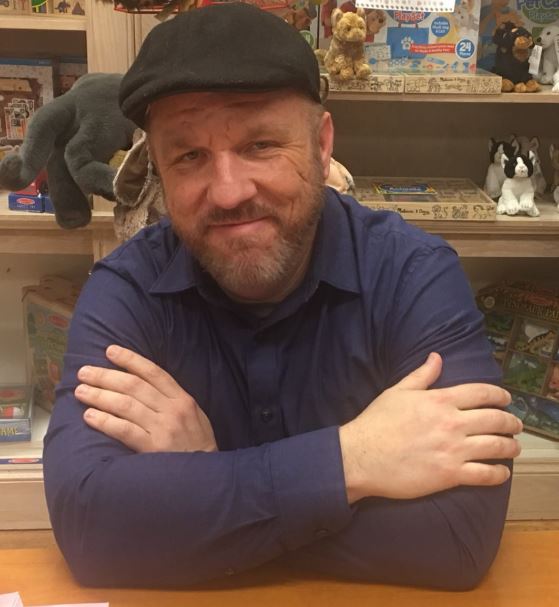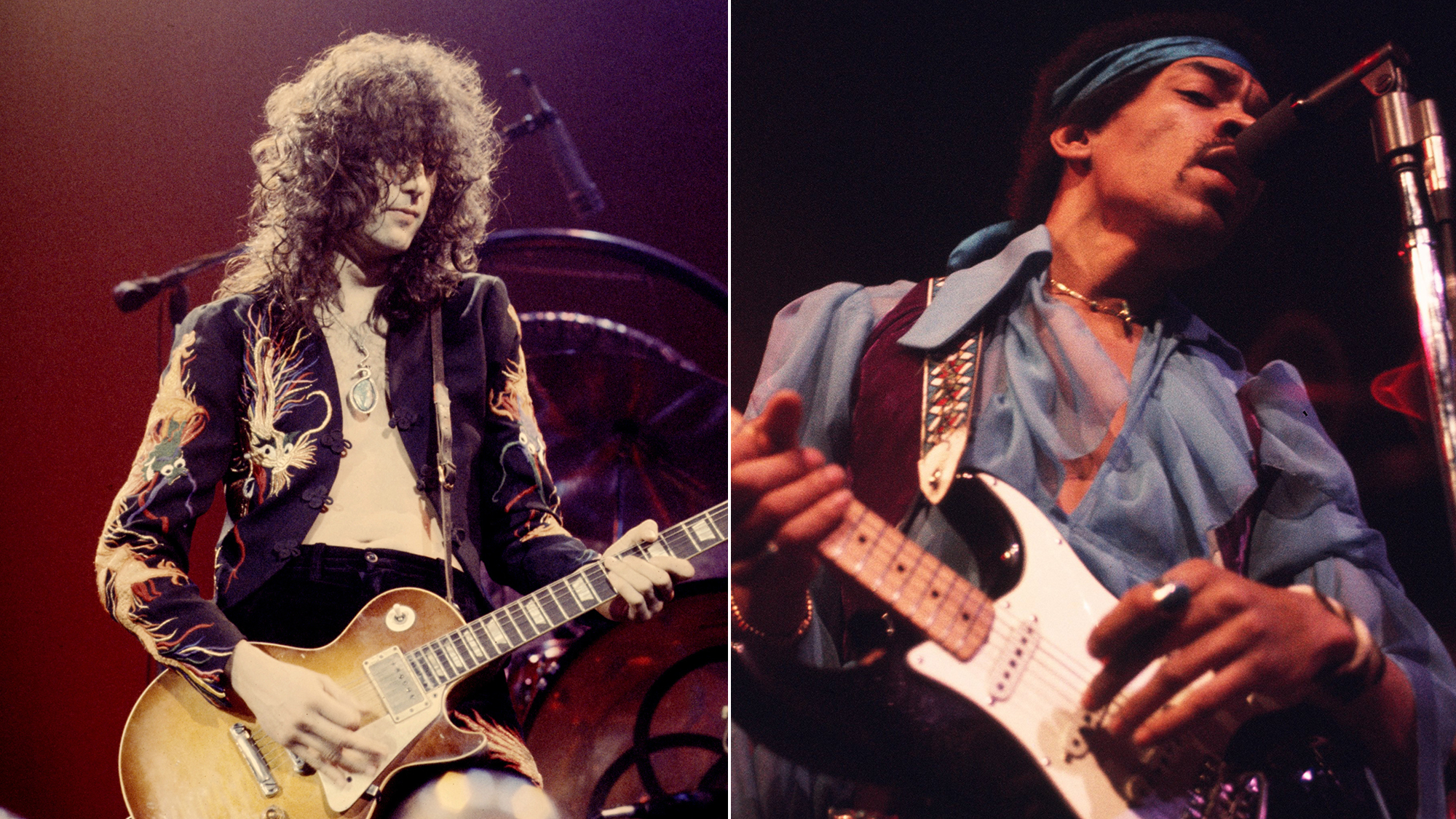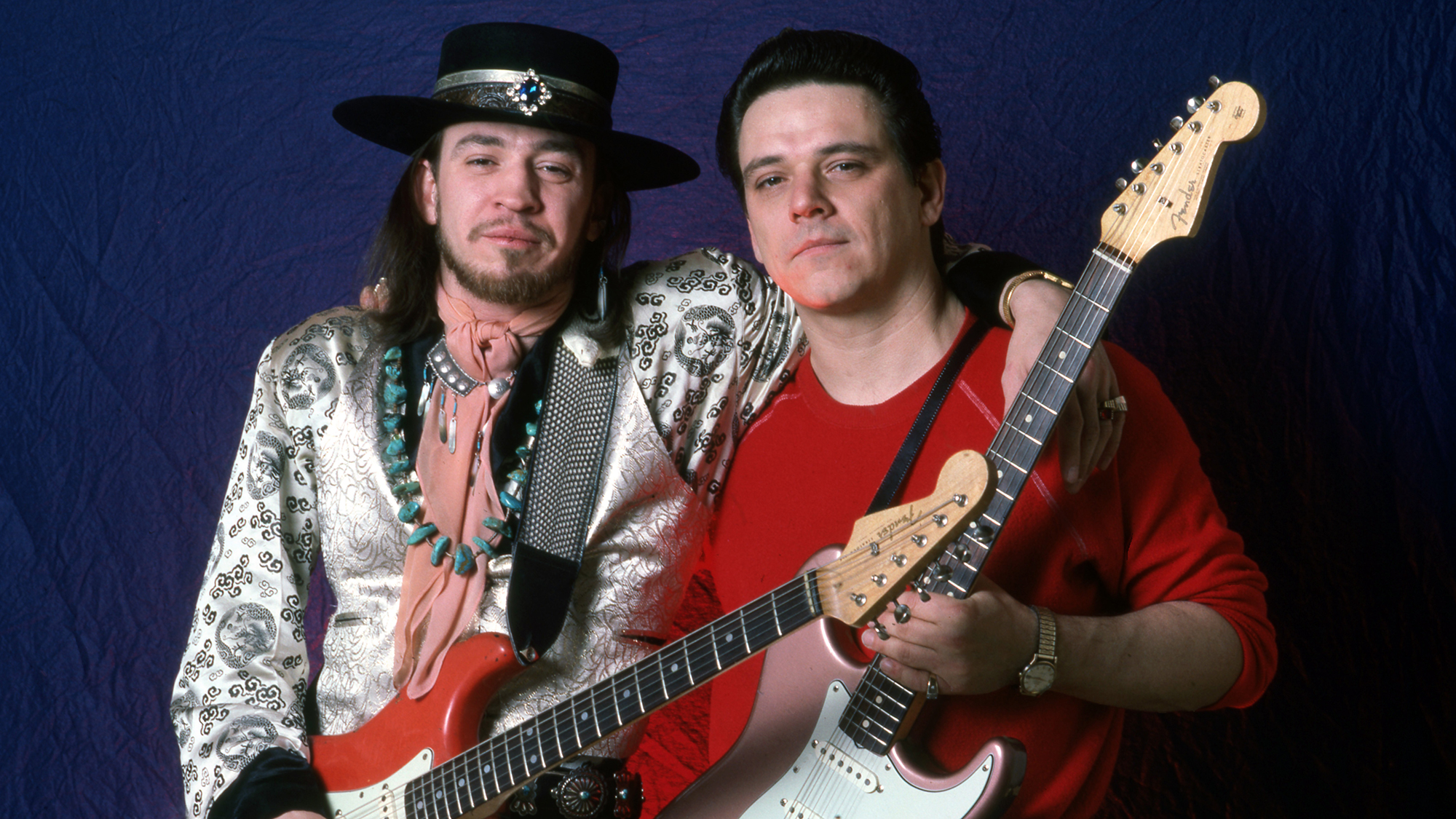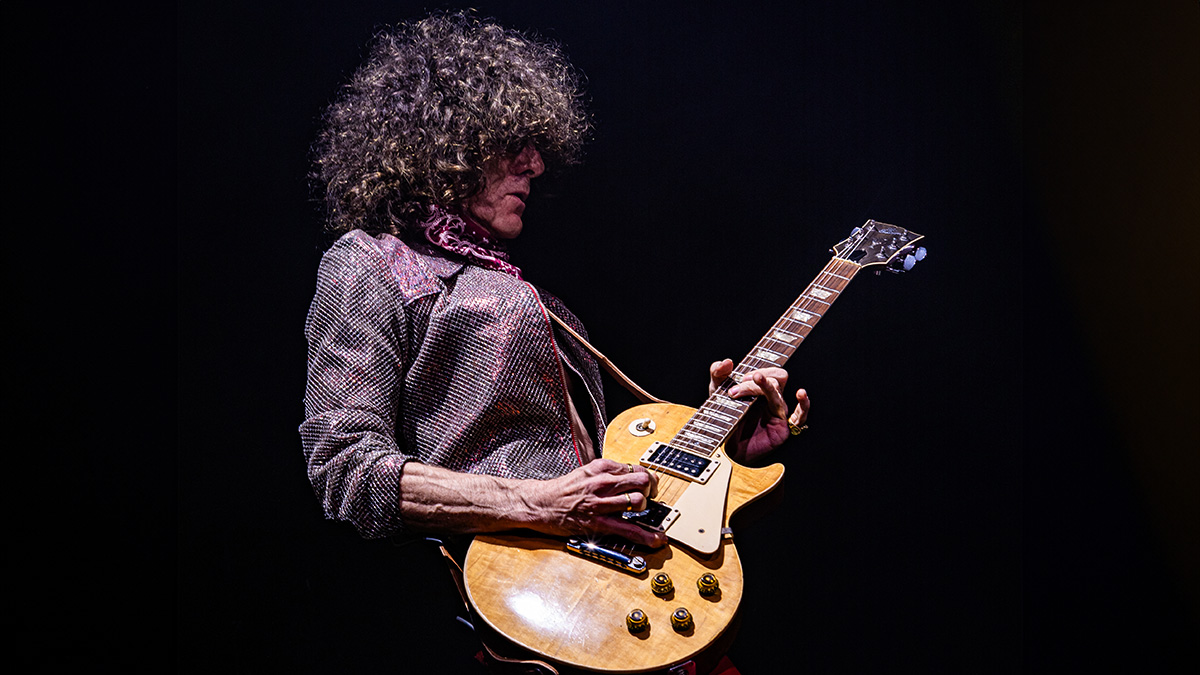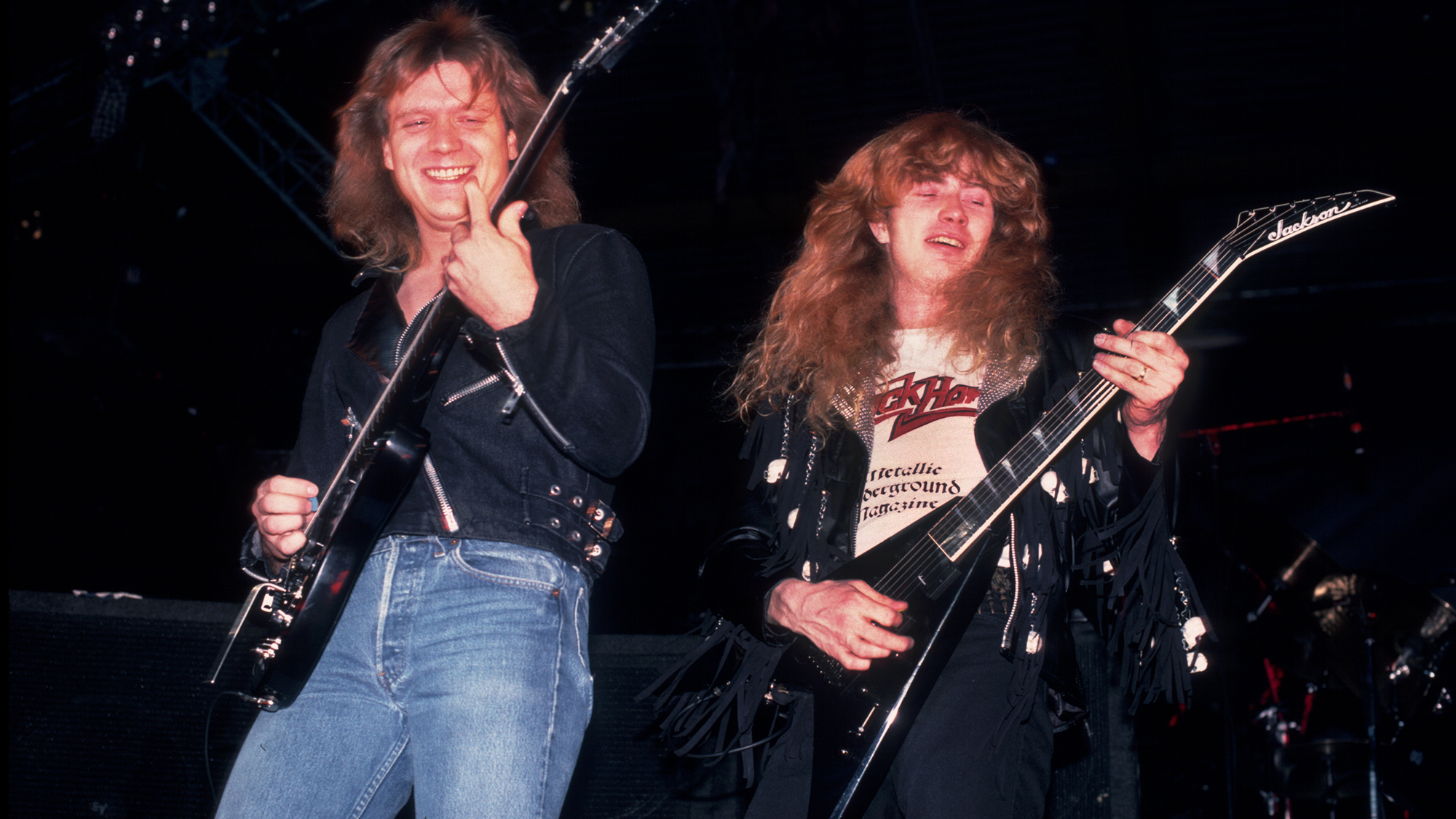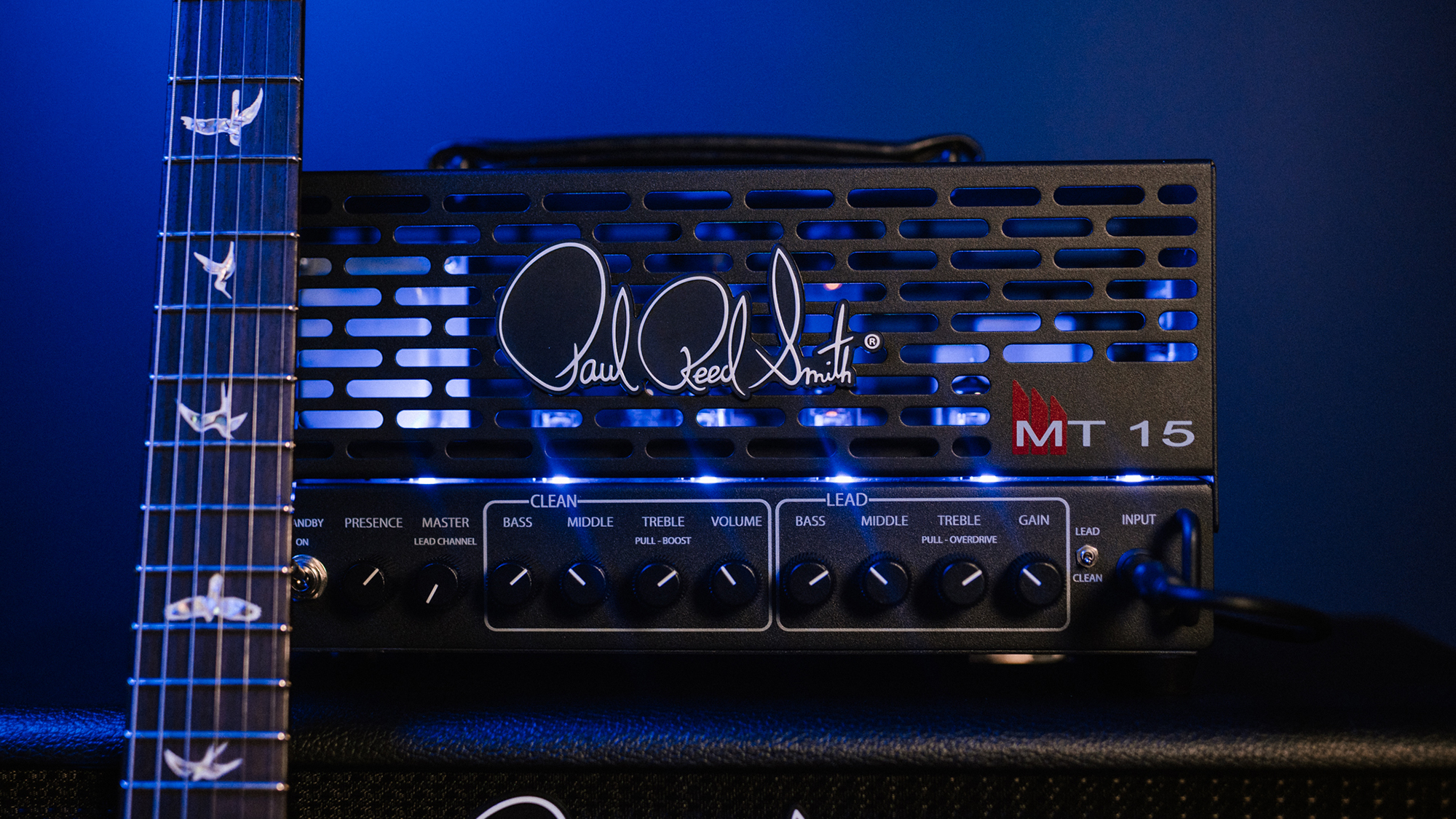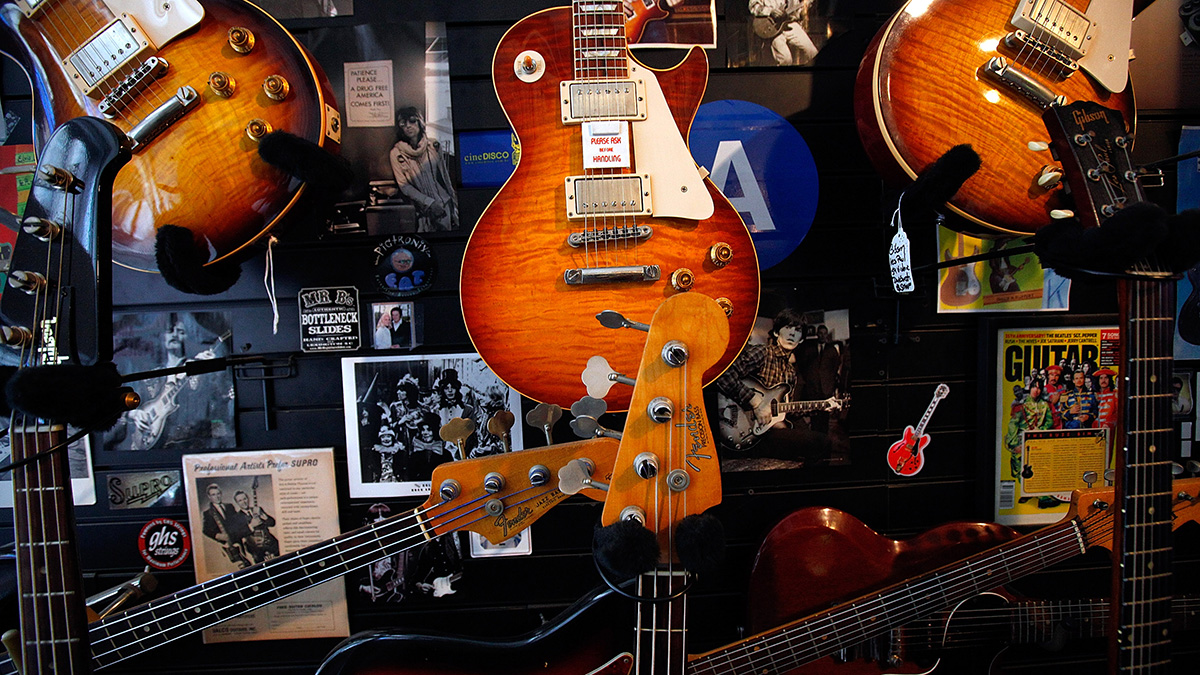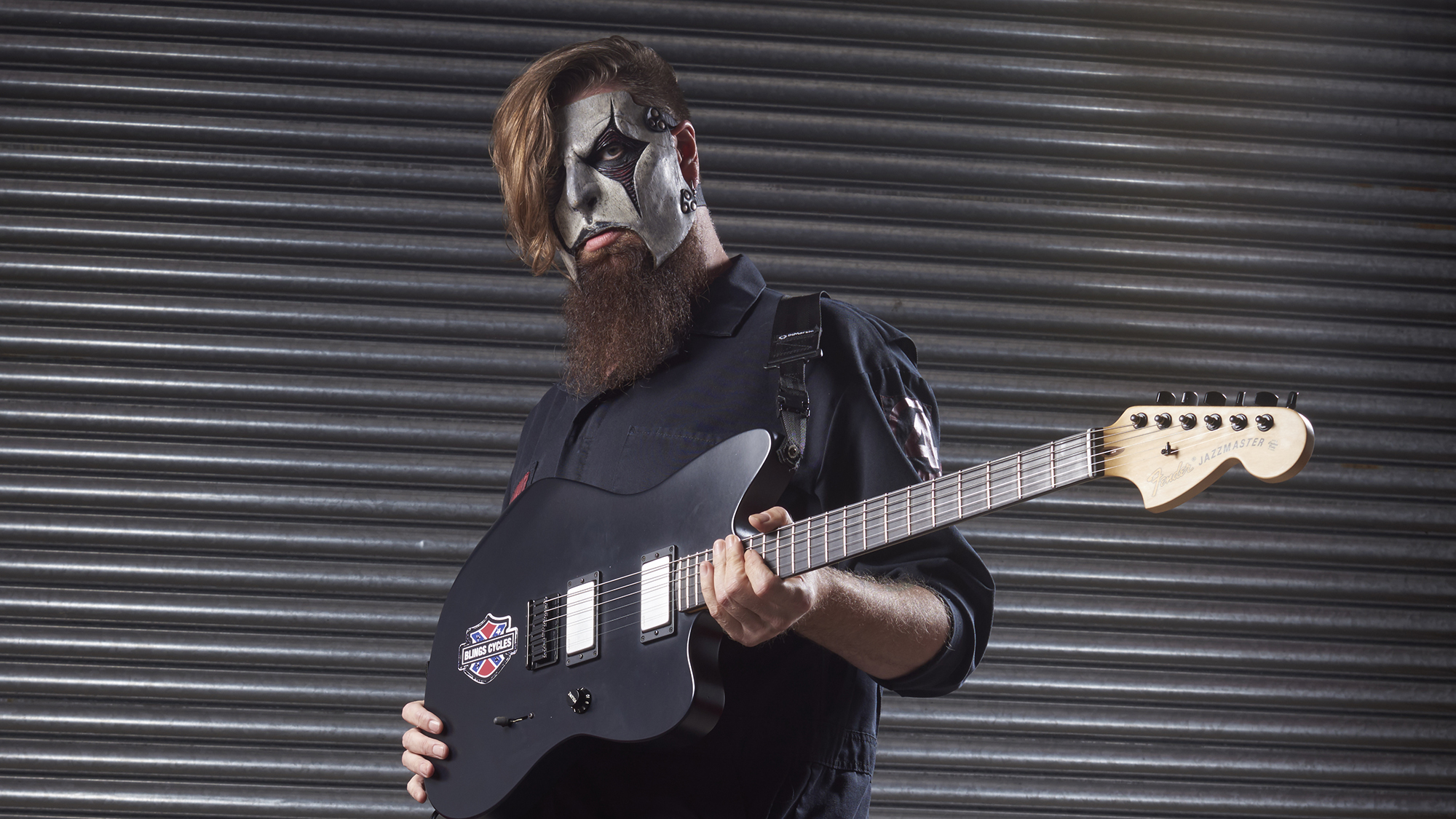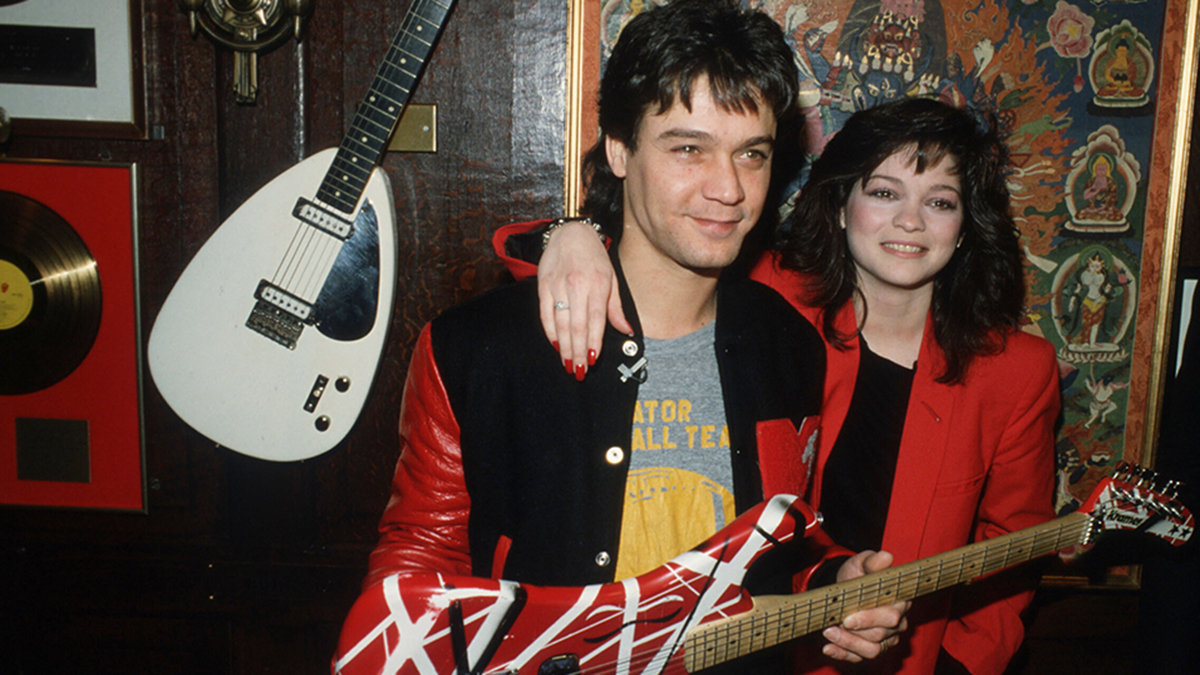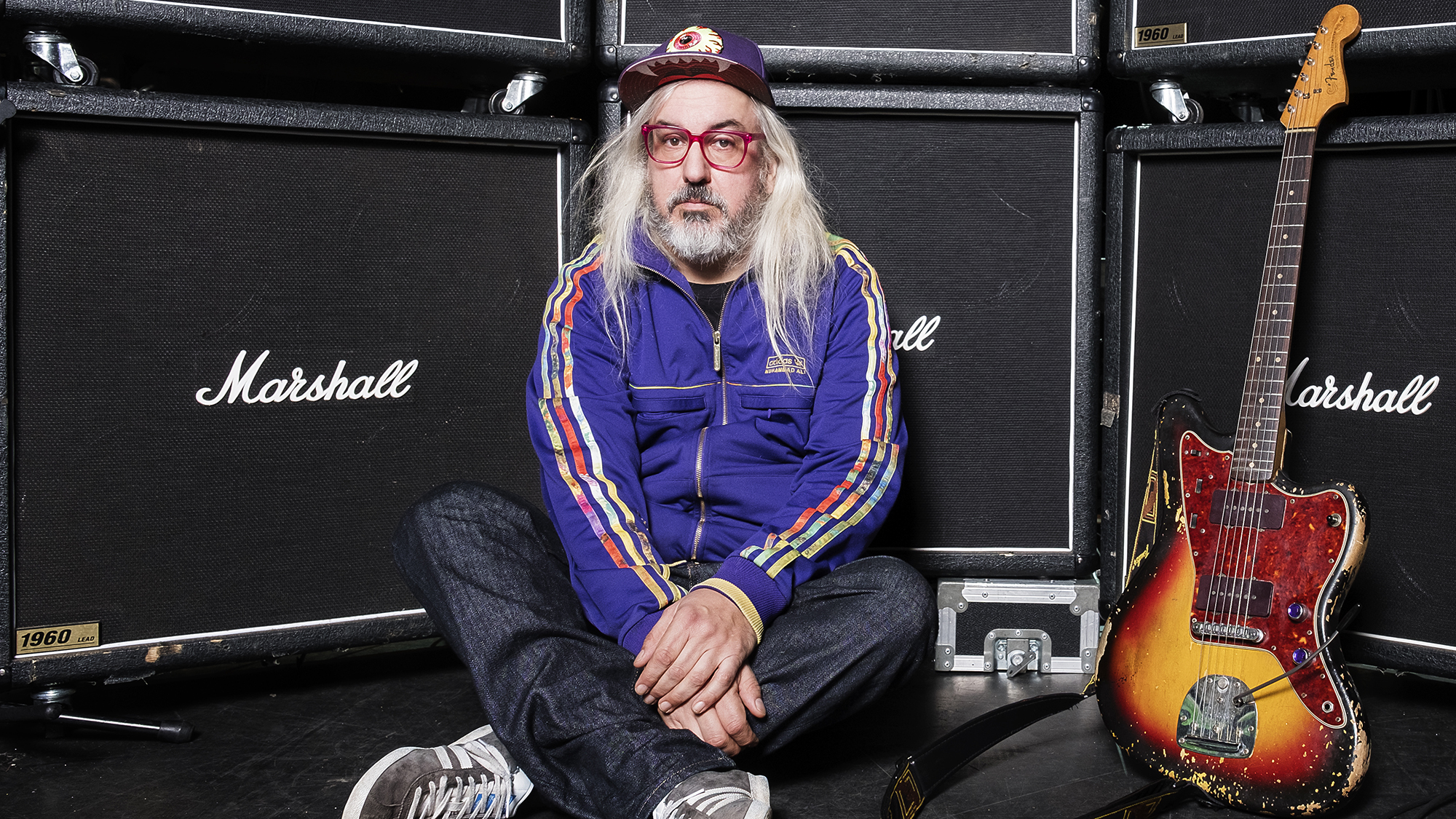Doobie Brothers Pat Simmons and Tom Johnston Talk Gear and Classic Tracks
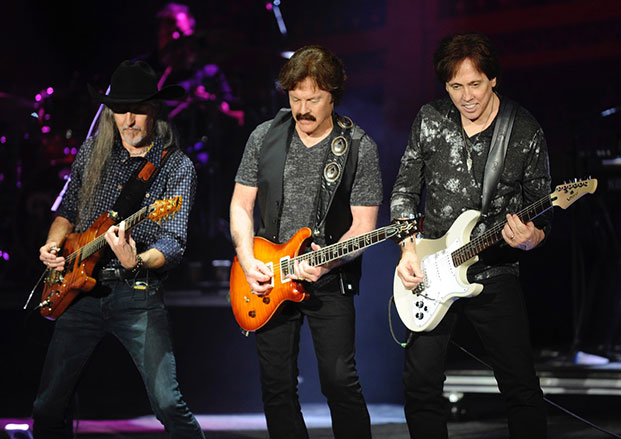
Over the course of their 40-plus-year history, the Doobie Brothers have been delivering their distinct brand of roots-based, harmony-laden, guitar-driven rock to eager fans old and new.
As a whole, the band has amassed more than 48 million in album sales to go along with a pair of Number 1 songs and four Grammys. Classic rock guitar aficionados have long known—and no doubt played—many of the riffs from the band’s arsenal of hits, including “China Grove,” “Black Water,” “Long Train Runnin’” and “Listen to the Music.”
The Doobies took a five-year hiatus in the early Eighties, only to return with a reunion album, Cycles, in 1989. They've been touring and making music ever since.
The Doobie Brothers' touring lineup—which is on the road with Journey this summer—includes Pat Simmons (guitar/vocals), Tom Johnston (guitar/vocals), John McFee (guitars/fiddle/vocals), Bill Payne (keyboards), Marc Russo (saxophone), Ed Toth (drums), John Cowan (bass/vocals) and Tony Pia (drums). I recently caught up with Simmons and Johnston to talk about the music, guitars and more.
This is actually the first time the Doobie Brothers have toured with Journey. How has it been going?
Simmons: Really good. When you get out on the road, you never know what it’s going to be like, but they’re all such great guys. It’s been just like family.
Johnston: There have been full houses and the crowds have been very receptive. It’s been a great tour all around.
Get The Pick Newsletter
All the latest guitar news, interviews, lessons, reviews, deals and more, direct to your inbox!
Bill Payne of Little Feat contributed keyboards on nearly every Doobie Brothers album and is now touring with the band. How did your relationship with him begin?
Simmons:Our producer at Warner Brothers, Ted Templeman, had done a Little Feat album and was working on ours [Toulouse Street]. I remember we were in cutting songs and Ted wanted to try some keyboards on a few tracks. He said he had this great keyboard player and when he brought in Bill, we all just flipped. He was so amazing. Bill came out occasionally to play in the early days and I tried several times over the years to get him to join the band, but he was always busy with Little Feat. Finally last year, he was substituting for our old keyboard player who had left for another gig. As usual, I said, “God I wish you could stick around”—and this time he said, “Well, as a matter of fact…” [laughs]. That was it!
What makes the music of the Doobies so timeless and special?
Johnston:It really depends on what your age range is. At some point in your life, the tunes may have meant something to you. In other cases, they’re songs you can sing along with and make you feel good. We’ve been lucky to have written tunes that have lasted and are still getting played today.
Simmons:For sure, it’s the songs. More than anything else in our culture, music is one of those things that brings back recall from your past. You don’t get to relive every minute but when you hear a song, you think about where you were or what you were doing when you first heard it. It’s a continual process and really keeps artists alive in people’s memories. It’s an all around association that’s not just about the music or the artist. It’s about people lives and how they all intermingle.
In the early years, the band had a string of hits from consecutive albums. What was it about that era that made it such a fertile period for songwriting?
Johnston: I think part of it was probably because they [the record company] wanted an album every year. You would be out on the road for 200 days of the year and once you got home, you’d have a week off and the implication was like, “OK, start writing.” So we learned how to work under pressure. But I’ve never sat down to write a song and said, “OK, this is going to work, or this is going to be a hit.” Ideas come into your head and the best ones are the ones you don’t have to labor over. They just write themselves. You don’t know where it comes from and you don’t ask any questions. You just let it happen.
Simmons:For us, it was also about having the opportunity to see something happen through music. We had been playing solo and in bands for years before the Doobies. So when you finally connect, it keeps pumping that adrenaline into your system and makes you want to do it as long as you can. Here we are now–45 years later and still doing it.
Let’s talk a little about some of the Doobies’ biggest hits. What can you tell me about “China Grove”?
Johnston:That was one of what I like to call the “12th Street Bedroom” songs [the home where Johnston lived at the time]. That song started out as just a lick. I remember playing it for a while and then I got the drummer and the two of us went down to the basement [where we lived, musically]. In those days, we would be blasting away at two in the morning, and probably driving the neighbors crazy [laughs].
How about “Listen to the Music”?
Johnston: That was another one that just popped out. It was about a guitar style I called “chucka chucka," which for me was about playing percussive stuff and finding a way to put a drummer into the song without a drummer being there. That’s also where “Long Train Runnin’” came from.
Pat, what’s your songwriting process like?
Simmons: I still carry around a journal with me and whenever something pops into my head or I get inspired, I’ll write it down. Probably 99 percent of what I write will wind up going into the wastebasket, but “Black Water” came about that way and so has every other song I’ve ever written.
The band disbanded in 1982 and got back together in 1987. How much of an impact did the reunion album, Cycles, have on you?
Johnston: That was a big deal because we all had been dormant for a while. But what was an even bigger deal were the gigs that happened right before it. We all had been doing our own thing, and all of sudden we got in front of an audience with four drummers, four guitar players and people spread out all over the place. I remember we did a test gig in San Diego and then played The Hollywood Bowl and the crowd just erupted. They were so happy to have us up on the stage.
Simmons: Every album has been an adventure, but Cycles was cool because at the time it was on the cutting edge of digital recording. Sampling had just started when were done in the early Eighties, and then when we came back, there all kind of cool things like synthesizers, digital drums, MIDI and computerized recording.
Tom, when did your love for PRS Guitars begin?
Johnston: I remember walking into a local music store one day about 30 years ago and they had this guitar on the rack. I said to the guy, “What’s this?” and he told me it was this new thing called a PRS. So I sat down and started noodling around on it for a while. I liked it so much that I ended up buying it and took it on a USO tour. I really got to know the instrument and it’s all I’ve been playing ever since. I’ve also started using their amps as well. They’re really great sounding amps.
Pat, what’s your current setup like?
Simmons: I’m playing through a Mesa Boogie Mark V and pretty much use honest sounds. My clean is basic with a little digital delay, and when I want to go into overdrive I use the other part of the amp to get the distortion and sustain. I’m not as sophisticated as guys that use four or five amps. I like to keep it old school.
What about guitars?
I love Taylor guitars. They work really great in my live rig. My electrics are primarily one-off, custom guitars. My guitar tech, Joe Vali built me a Koa guitar with EMG pickups that has a great quality to it. I’m also using a similar guitar that my other tech, Mark Brown, made for me. I’ve been playing those for the last thirty years. I’ve also started playing Taylor electrics and have been enjoying those as well.
The band released a duets album called Southbound in 2014, and your last studio album was 2010’s World Gone Crazy. Has there been any talk about recording more new music?
Johnston:It’s in the planning stages. We’re going to finish up this touring circle and then we’ll be meeting with a few people about it. We’ll see what happens.
Simmons: We’ve been talking about it for the better part of a year now, and everyone’s been busy writing. I wrote a few songs with Bill Payne and Tommy also has one he’s written with Billy. It’s a really cool thing.
James Wood is a writer, musician and self-proclaimed metalhead who maintains his own website, GoJimmyGo.net. His articles and interviews are written on a variety of topics with passion and humor. You can follow him on Twitter @JimEWood.
James is a guitarist and freelance writer who's interviewed some of the biggest names in music. He is the author of four books and his writing credits include work for Guitar World, AXS and Yahoo! as well as for his hometown newspaper where he writes on a variety of topics with both passion and humor. As a guitarist, he's performed everywhere from local bars and nightclubs to some of the biggest stages in front of thousands of music fans.
